Cuba Explained: Frequently Asked Questions
By Sydney Tong on February 05, 2017. Read time: 8 mins.
With political tensions thawing Cuba is the hot travel destination and a lot of information needs to be updated for our fellow travelers.
We found a lot of advice older than a year to be out of date and uninformative. We had a difficult time finding concrete and correct answers to many of our questions. With new regulations constantly evolving we want to help explain some of the confusing and unknown aspects of traveling to Cuba. We hope with our latest information you will be prepared and confident when traveling to this exciting country.
I was particularly nervous about this trip because there is a lot of conflicting information about what I should expect as an American traveling to Cuba. United States airlines had only started flying direct two months prior and finding accurate information or someone to answer my worries was scarce.
Being prepared and always having a backup plan is absolutely key. The learning curve is steep and we went grossly underprepared. I am writing these tips in hopes that you take them to heart so your trip is light years smoother. If you have any questions just ask and I will do my best to answer your questions to the best of my ability.
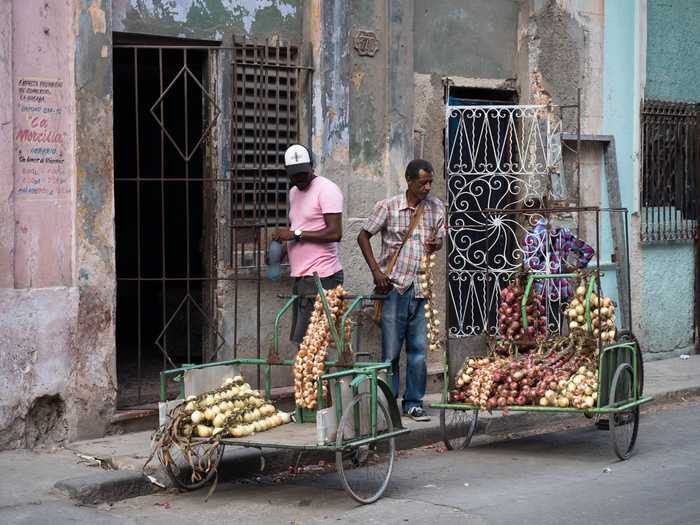
Visa, fees, travel insurance
We flew with JetBlue and they were the absolute best. During the booking process you should fill out a travel affidavit, they may print it out for you when you check in to your flight.
We bought our visa (People to People) in Orlando at the gate one hour before boarding the plane. You can pay in cash or with a credit card. If you pay in cash, then it has to be in exact change ($50USD). We recommend saving your cash for Cuba and pay for your visa with the card. During immigration, no one asked about our plans, evidence of what we planned to do while in Cuba. I overheard the ticket agent grill the guy ahead of us when he was trying to buy the visa but that was it.
Exit fees ($25USD) were included in our airfare, thank you JetBlue. No one ever asked about our travel insurance but it was also covered by JetBlue and the credit cards we used to book the flight.
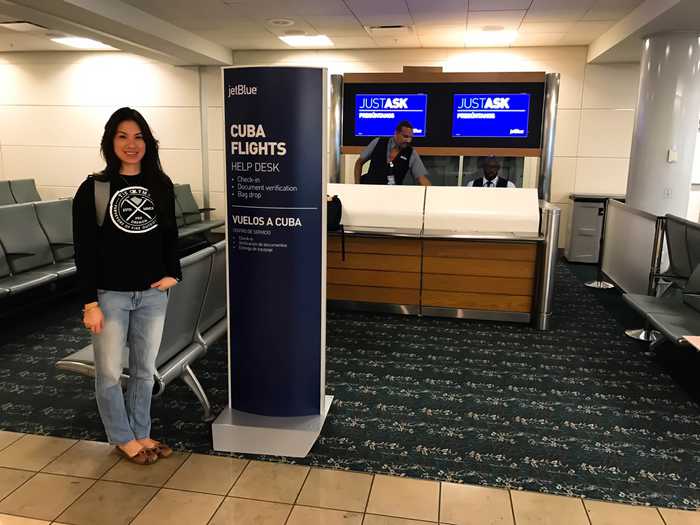
The 13% tax
When exchanging US Dollars to CUC (convertible peso) you will lose 13%. Of that 13%, 3% is lost through exchange fees, this applies to all currency being exchanged. The remaining 10% is a tax applied only when exchanging USD. We have done the calculations to see if there is money to be saved by first exchanging USD to Canadian Dollars or Euros before exchanging to CUC.
All of the money exchange offices will charge you the 10% fee when exchanging USD. There isn't a way around it, there isn't an underground office that magically waives the fee. One blogger said that the airport doesn't charge the extra 10%, we went to verify his claim and it was completely untrue. They charge the same as all of the other exchange offices.
The amount of money saved had we changed to Euros before exchanging to CUC was so insignificant it was hardly worth the trouble. However, if changing a large sum of money (several thousand dollars) it would be worth it to exchange to Canadian Dollars/Euros beforehand to save a few extra dollars.
Banks, Cadecas (exchange offices), and large hotels are all valid places to exchange money. We exchanged money at hotels because the hours were more flexible and the lines were much shorter. They still charge the 10% fee when exchanging USD.
If you pay a bill at a restaurant in US Dollars, then the staff will charge you the 13% that they will lose when they exchange the money. The cigar shop we went to accepted USD as a form of payment and also charged the 13%.
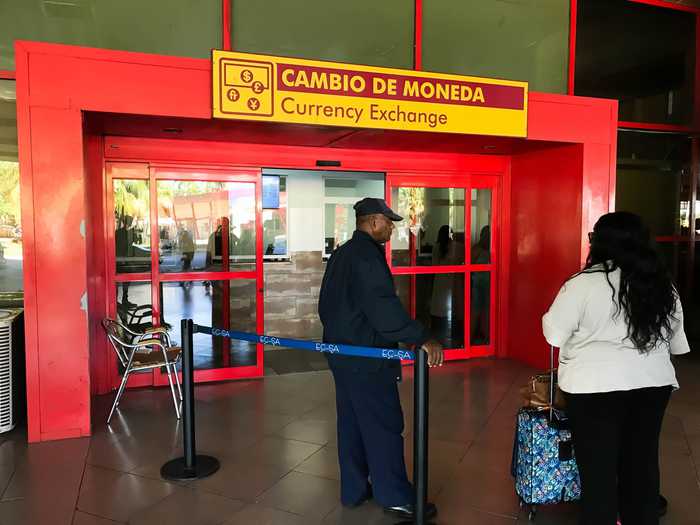
CUP vs. CUC
Cuba has two different currencies, the CUC, and the CUP and it is wise to know the difference between the two. The CUP is what Cubans use to pay for the majority of their expenses. CUP bills have pictures of their leaders printed on them. CUC bills have pictures of monuments or tourist attractions on them. They also have convertible peso printed in the middle on the front of the bill.
Know the difference and always check that you have been given the right bills as change. Generally, 25CUP=1CUC. Cubans call both of them peso, so distinguish what you will be paying in before making any purchases. The CUC is not a recognized currency by any other country so change them back at the end of your trip or spend it all on rum and cigars at the duty-free shops.
Also, be aware of counterfeit money because apparently, it is really common. I didn't come across any counterfeit bills so I am unsure how to identify them. One lady explained to me that real bills will have the ghost matching the main image in the bill.
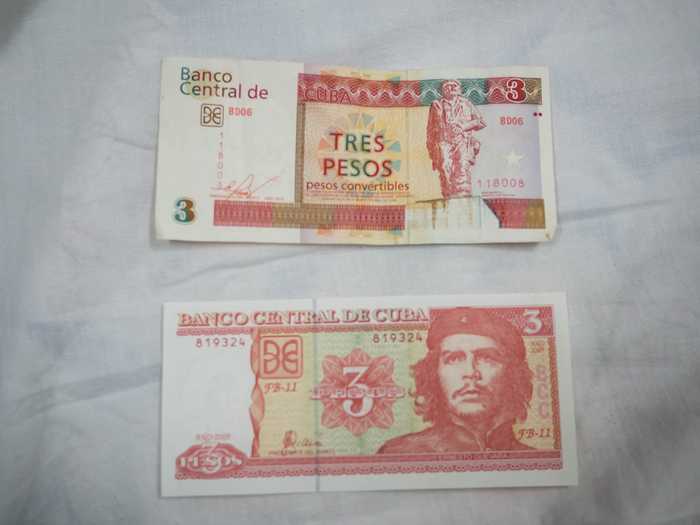
Using the internet
The internet as you know it is most likely not the same in Cuba. Don’t expect your accommodations to have internet, this includes your room in your hotel/casa. Internet is only available in the hotel lobbies of large hotels or the public parks. It is slow and unreliable, and the cards that are used to access it frequently sell out. Don’t plan on using it as much as you want.
We have T-Mobile which has an awesome international plan and is available for use but it is very expensive.
In order to use the internet in Cuba, you must first purchase an internet card. They cost 1.50CUC for one hour of access but you can expect to be charged anywhere from 1.50-5CUC/hour.
You can buy internet cards at the front desk of big hotels or someone walking around the park. Anticipate buying internet cards in a different location from where you will actually use the internet.
To find internet you only need to look for a bunch of people hanging out on their phones. You might not notice it at first but if you see giant crowds of Cubans on their phones then be assured that there is internet available. The internet can be found in some neighborhoods, parks, and larger hotels.
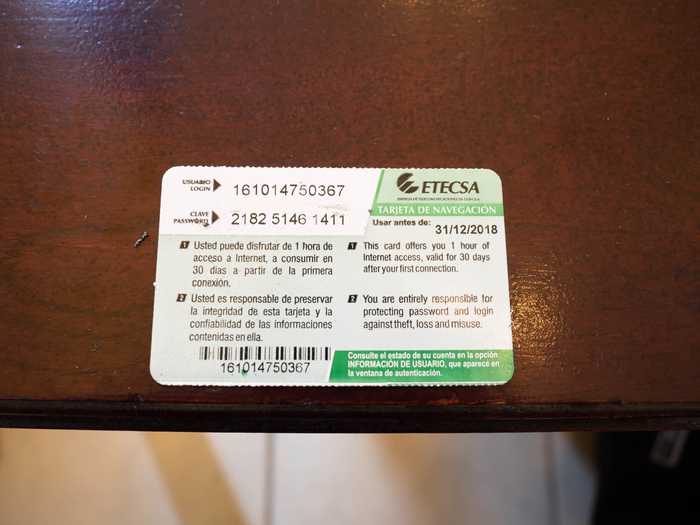
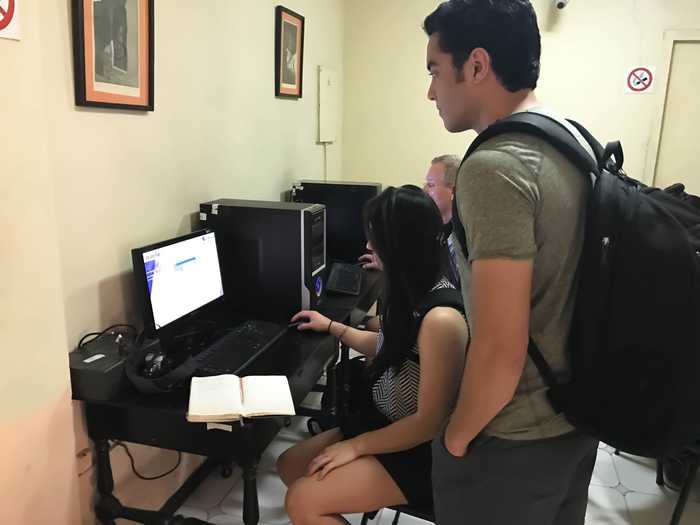
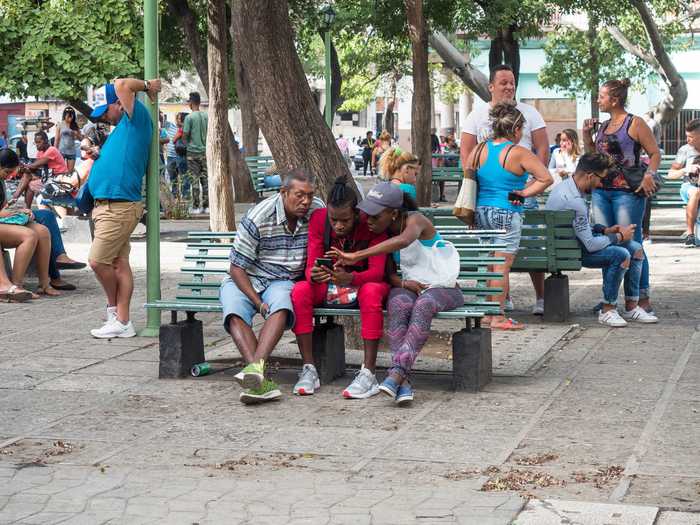
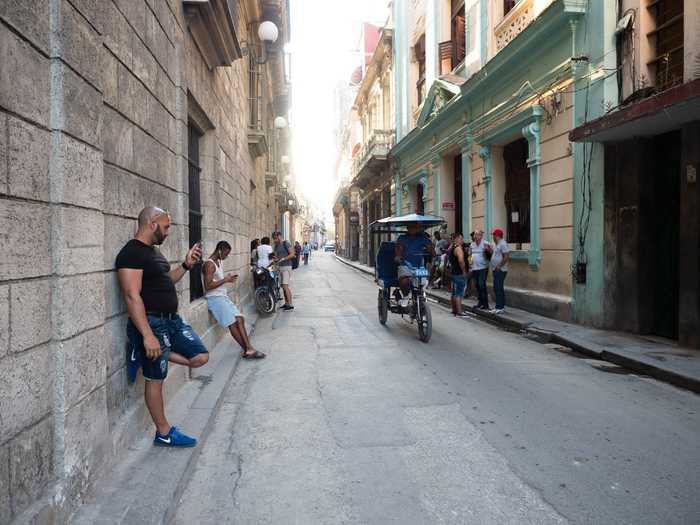
Is it safe?
With travel to Cuba being relatively new it has yet to establish its safety reputation. Violent crime against locals or tourists is not common. However, tourists are perceived as wealthy and are targets of pick-pocketing, purse snatching and being taken advantage of.
We recommend keeping important documents and large amounts of cash safely hidden or locked up at your casa or hotel. While walking around and exploring remain aware of your surroundings and the people around you. Be aware of people who get too close or too friendly as they might be trying to open your backpack. Also, I highly recommend counting your change every time. We were shorted change way too often for it to be an accident.
Count your change every time and make sure you are receiving the correct bills.
All three of the casa particulares that we stayed in all felt pretty safe. Hosts know that safety is a huge concern and they make it a priority. Each house we stayed in had at least levels of locked doors to get to our room, and they all assured us that no one goes in the rooms and they’ve never had a break-in. It seemed as if they prided themselves on their high levels of safety.
As a young woman there was a lot of “cat-calling” towards me. While it was unwanted attention I never felt threatened or in danger. Just ignore them and continue walking. Should you want more information on the safety in Cuba here is a good website that goes more in depth about all different aspects of safety. In-depth safety explanation here
Where to stay?
There are two options for accommodations when staying in Cuba. You can choose from government run hotels or a casa particulares. If you choose to stay in a casa you can book one in advance over the phone, talk to someone at the airport/bus station upon arrival, walk around the city and look for “rent a room signs” or book on Airbnb.
People wait at the airport and bus stations with photos of their available rooms. You should expect to pay between $20-$30 CUC/night. Hosts have signs outside of their house advertising their rooms, it is impossible to miss. If they don’t have any open space, they will know someone who does.
There will always have a place to stay in Cuba, so long as you have sufficient funds. All of these casas need to be paid in cash, if you don’t have enough cash then Airbnb is going to be your option.
If you want to stay in an Airbnb it is easiest to book all of your accommodations ahead of time. We are dedicated Airbnb users and booking from within Cuba is not allowed. You will be able to browse through available properties but not given the option to book. Airbnb is great because it is one of the only ways to pay via credit card.
There are two ways around this obstacle. One, you can give all the information; booking dates, property, account information, credit card information to someone you trust in the US (any country outside of Cuba) and have them book it for you. The other option is to tunnel into Cuban internet through the US. We used Tunnel Bear and were able to book without any complications.
Both of these options worked, one may or may not be legal but if you are strapped for options then this may work for you. Hosts are very quick to reply because they understand that internet is limited and they get their booking information via text messages.
I really hope that these tips help to clear up some ambiguous information about traveling to Cuba. We really enjoyed our time there and we are already planning our next trip back. We made a lot of mistakes traveling there and we hope that you can take those mistakes and learn from them.
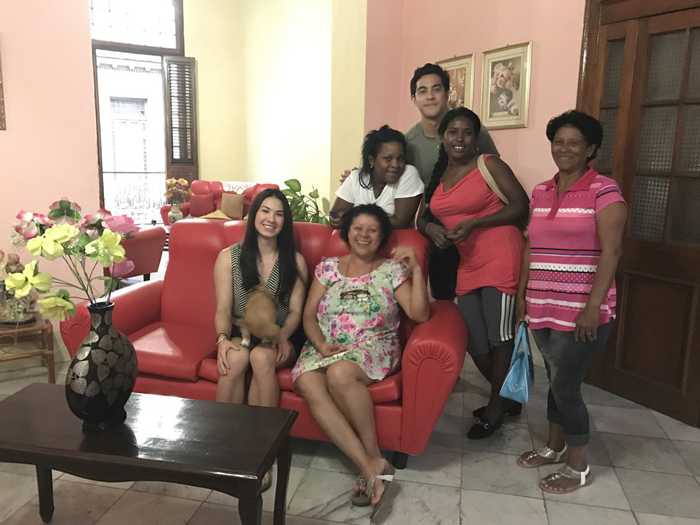
How much rum & how many cigars
When I told people I was going to Cuba almost everyone asked me to bring back cigars. There is still a lot of conflicting information on the amount that Americans are able to bring back.
In October 2016, the U.S. eliminated the $100 limit on the value of rum and cigars that Americans are able to bring back from Cuba. Travelers are now able to bring back as much alcohol and tobacco as they can carry to the States. However, it must be for personal use only!
I suggest keeping it to 2-4 boxes of cigars to be safe. We brought back 14 bottles of Cuban rum and 1 box of cigars between the two of us and did not have a single problem going through U.S. customs. Make sure to keep the receipts with you, because the agent might ask to see it.
If you plan to buy cigars then make sure you bring enough cash. A good box of Cohiba cigars at a reputable shop will cost 250CUC ($282.5USD if you include the 13% tax). Here is a link to the official U.S. Customs and Border Patrol website for their statement. U.S. Customs and Border Patrol
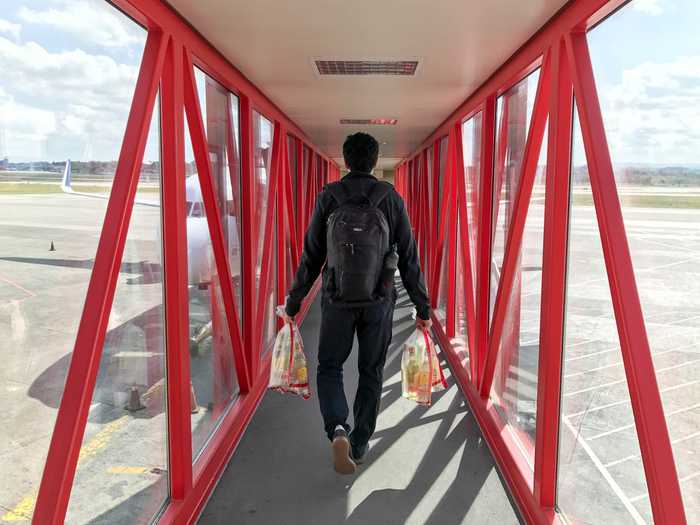
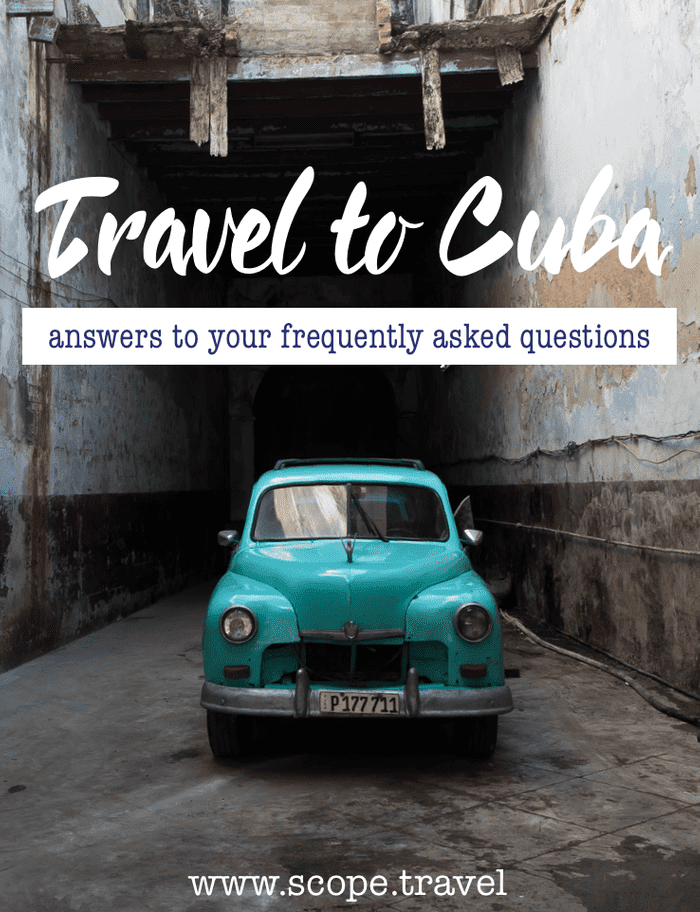
Join our weekly adventures
Gain access to our exclusive travel tips and more!
Expect exotic destinations, big adventures, flavorful food and unforgettable stories from our travels.